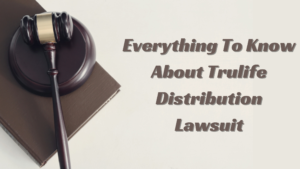A Comprehensive Guide for Estate Tax Changes
- 1 Recent Changes in Federal Estate Tax Laws
- 2 Potential Reductions in the Exemption Amount
- 3 Strategies to Adapt to Estate Tax Changes
- 3.1 1. Lifetime Gifting
- 3.2 2. Establishing Trusts
- 3.3 3. Charitable Giving
- 3.4 4. Leveraging Life Insurance
- 4 Regularly Reviewing and Updating Your Estate Plan
- 5 Common Pitfalls in Estate Tax Planning
- 6 Conclusion
Key Takeaways
- Understanding recent and upcoming changes in estate tax laws.
- Knowing the implications of these changes for estate planning.
- Exploring strategies to adapt to new tax laws effectively.
- Staying updated on federal and state estate tax regulations.
Estate tax laws are subject to change, influenced by economic conditions, legislative changes, and shifting political priorities. Staying updated on these changes is essential for effective estate planning, especially for a lawyer in Westminster. In Westminster, real estate laws regulate property transactions, zoning, building codes, and tenant-landlord relationships. These laws ensure fairness, balance, and responsible development in the city’s real estate market. Compliance is crucial for all involved in Westminster property transactions.
This guide delves into recent and anticipated changes in estate tax laws, helping you understand their implications and adopt strategies to minimize tax liabilities. By remaining educated, you can safeguard your assets and ensure your heirs have a seamless transition.
Recent Changes in Federal Estate Tax Laws
The federal estate tax exemption—the amount that an individual’s estate can be worth before being subject to federal estate taxes—has been a focal point of recent legislative changes. The federal estate tax exemption for individuals is $12.06 million as of 2022, double that amount for married couples filing jointly. This high exemption level, set by the Tax Cuts and Jobs Act (TCJA) of 2017, is slated to remain in place until 2025.
However, it’s important to note that these figures are subject to change based on inflation adjustments and potential legislative revisions. The current political climate suggests there may be moves to reduce the exemption amount, significantly impacting estate planning strategies. Considering the uncertainty, planning for lower exemption levels is a prudent approach.
Potential Reductions in the Exemption Amount

Lawmakers have proposed reducing the federal estate tax exemption to lower levels, such as $5.49 million per individual, similar to pre-TCJA limits. If such changes are enacted, more estates will be subject to federal estate taxes, increasing the need for proactive planning. It’s crucial to stay informed about potential legislative changes and discuss their implications with an estate planning professional.
Changes to the Tax Rate
While the current maximum federal estate tax rate is 40%, there have been discussions about increasing this rate. Proposals have included raising the top estate tax rate to 45% or higher. Such changes would necessitate more sophisticated and aggressive tax planning strategies to mitigate the financial impact on estate values.
State Estate Taxes
Many states have their own estate or inheritance taxes in addition to the federal estate tax; each state determines the exemption levels and tax rates. Staying updated on state-level changes is essential, as these can significantly impact overall tax liability.
Diverse State Tax Environments
State estate tax rates and exemptions differ significantly. For example, states like New York and Massachusetts have lower exemption thresholds, making many estates subject to state estate taxes. In contrast, states such as Florida and Texas impose no estate or inheritance taxes, providing residents with a more favourable tax environment.
It’s paramount for individuals with substantial estates to consider the state-specific tax implications when planning their estates. Moving to a state with more advantageous tax regulations may make sense, but doing so will require careful assessment of lifestyle, family, and total financial impact, among other considerations.
Strategies to Adapt to Estate Tax Changes
Adapting to changes in estate tax laws requires a proactive and flexible approach. Here are some strategies to consider:
1. Lifetime Gifting
Making lifetime gifts is an excellent way to lower the taxable value of your estate. Thanks to the annual gift tax exclusion, you can give up to $16,000 per recipient in 2022 without paying federal gift taxes. By gifting assets gradually over time, you can minimize the taxable portion of your estate and reduce potential estate tax liabilities.
2. Establishing Trusts
Trusts can lessen the incidence of estate taxes and are practical tools for estate planning. With a revocable living trust, you can direct the distribution of your assets after death, avoiding the probate process while still controlling them throughout your lifetime.
Your taxable estate may contain fewer assets if you create an irrevocable trust, which might reduce your estate tax obligation. There are various types of trusts, each with specific benefits and drawbacks, so consulting with an estate planning professional is crucial to determine which trust structures best suit your needs.
3. Charitable Giving
Donating to charitable organizations is another way to reduce the value of your taxable estate. Giving to charities can also result in income tax deductions, which can help causes you care about while providing instant financial benefits. Long-term tax and charitable advantages can be obtained by creating a donor-advised fund or charitable remainder trust.
4. Leveraging Life Insurance
When it comes to estate planning, life insurance can be pretty significant. The policy proceeds can be kept out of your taxable estate by creating an irrevocable life insurance trust (ILIT). These proceeds can provide liquidity for your estate, covering tax liabilities and other expenses without forcing the sale of estate assets.
Regularly Reviewing and Updating Your Estate Plan
Estate tax laws are dynamic, making regularly reviewing and updating your estate plan essential. Legislative changes, asset value fluctuations, and personal circumstances can all impact your estate planning strategy. Engaging with an experienced estate planning attorney ensures that your plan remains compliant with current laws and optimally structured to minimize tax liabilities.
Set a schedule to review your estate plan periodically and make adjustments as needed. Significant life events—such as marriage, divorce, the birth of a child, or the acquisition of substantial assets—should also trigger a review and potential revisions to your plan.
Common Pitfalls in Estate Tax Planning
Avoiding common pitfalls in estate tax planning can significantly affect overall tax outcomes. Here are a few pitfalls to watch out for:
1. Procrastination
Delaying estate planning can lead to missed opportunities for tax savings. Proactive planning allows you to implement strategies over time, reducing the taxable value of your estate gradually and efficiently.
2. Overlooking State Taxes
Many people focus solely on federal estate taxes, neglecting state-level taxes that could apply. Comprehensive planning should encompass federal and state tax obligations to minimize overall liabilities.
3. Inadequate Record-Keeping
Proper documentation is crucial for effective estate planning. Failing to keep detailed records of gifts, asset valuations, and estate planning decisions can lead to disputes and higher tax liabilities. Ensure your documents are current and well-organized, and distribute them to reliable experts helping you with your estate planning.
Conclusion
Navigating estate tax changes involves staying informed about legislative developments and understanding their potential impact on your estate. By leveraging strategies such as lifetime gifting, trusts, charitable donations, and life insurance, you can adapt to new tax laws and minimize their impact on your estate. Your estate plan helps you safeguard your assets and provide for your heirs by being up-to-date and effective with regular evaluations and modifications.
Engaging with estate planning professionals helps you navigate these complexities confidently, leading to a well-structured estate that maximizes the benefit to your heirs while minimizing the tax burden.

















